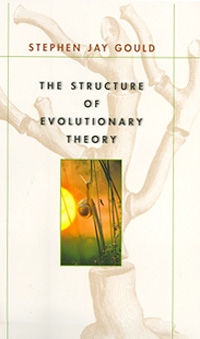A review of The Social Conquest of Earth by Edward O. Wilson.
Edward O. Wilson is one of the grand distinguished scientists of our time, the winner of two Pulitzer Prizes (for On Human Nature in 1979 and The Ants in 1991) who writes intricate and detailed technical papers and books on the most narrow of topics (e.g., ant ecology) in between penning grand theoretical works about human nature, history, and the environment. He has been mistrusted by conservatives for his promotion of the teaching of evolutionary theory and his conservation efforts to preserve the environment, and he has been vilified by liberals for suggesting that humans have a biological nature that is not infinitely malleable by social engineering. His 1998 book Consilience: The Unity of Knowledge was nothing short of a clarion call to resurrect the Enlightenment and reengineer it for the new millennium, suggesting that theologians and philosophers have had their day in the court of morality and ethics and that it is high time scientists had a say in what constitutes right and wrong and the good life. Anything that E. O. Wilson writes about is well worth reading, and The Social Conquest of Earth is no exception.
Readers who are already familiar with “big science” works by such authors as Jared Diamond, Matt Ridley, Robert Wright, Richard Dawkins, and Steven Pinker, covering everything from evolutionary theory through the evolutionary psychology of economics, politics, and morality, will find much of this same well-worn ground reviewed in The Social Conquest of Earth, but with Wilson’s unique perspective as a biologist who studies sociality and the evolution of social species. As such, The Social Conquest of Earth flips back and forth between human evolution and social history and insect evolution and sociality. What is new—or at least different from the other grand works produced by the authors noted above—is Wilson’s endorsement of a controversial idea in evolutionary theory called group selection, in which social groups are the target of natural selection, not just individuals. He describes the process by which groups become cooperative as “eusociality,” or good social groupness, which Wilson contends enables them to compete more successfully against other less-cooperative groups. (continue reading…)
Comments Off on The Rise of the Humans
Science and Culture in Evolutionary Theory
This article Rethinking Marxism Vol. 15, No. 4 (October 2003).
We live in the Age of Science. Scientism is our world-view, our mythic story about who we are, where we came from, and where we are going. As such, scientists are our preeminent storytellers, the mythmakers of our epoch. Prominent among them are such cosmologists and evolutionary theorists as Carl Sagan, Stephen Hawking, Edward O. Wilson, and Richard Dawkins, whose books are read by professionals and the public alike, with spectacular advances and (publishers hope) matching sales that reflect the rise of a scientistic literati, where it is now chic to have read (or at least to have on your coffee table) their works. (continue reading…)
Comments Off on The Punctuated Politics of Stephen Jay Gould
Stephen Jay Gould as Historian of Science and Scientific Historian, Popular Scientist and Scientific Popularizer
This article appeared in Social Studies of Science 32/4 (August 2002).
Abstract
Science historian Ronald Numbers once remarked that the two most influential historians of science of the 20th century were Thomas Kuhn and Stephen Jay Gould. All historians are deeply familiar with Kuhn’s work and influence, and most know of the remarkable impact Gould has had on evolutionary theory through both his professional and popular works. But little attention has been paid to the depth, scope, and importance of Gould’s role as historian and philosopher of science, and his use of popular science exposition to reinforce old knowledge and generate new. This paper presents the results of an extensive quantitative content analysis of Gould’s 22 books, 101 book reviews, 479 scientific papers, and 300 Natural History essays, in terms of their subject matter (Evolutionary Theory, History and Philosophy of Science, Natural History, Paleontology/Geology, Social Science/Commentary), and thematic dichotomies (Theory–Data, Time’s Arrow–Time’s Cycle, Adaptationism–Nonadaptationism, Punctuationism-Gradualism, Contingency–Necessity). Special emphasis is placed on the interaction between the subjects and themata, how Gould has used the history of science to reinforce his evolutionary theory (and vice versa), and how his philosophy of science has influenced both his evolutionary theory and his historiography. That philosophy can best be summed up in a quotation from Charles Darwin, frequently cited by Gould: ‘All observation must be for or against some view if it is to be of any service’. Gould followed Darwin’s advice throughout his career, including his extensive writings on the history and philosophy of science. (continue reading…)
Comments Off on This View of Science
A review of Stephen Jay Gould’s The Structure of Evolutionary Theory.
We live in the Age of Science. Scientism is our worldview, our mythic story about who we are, where we came from, and where we are going. As such, scientists are our preeminent storytellers, the mythmakers of our epoch. (continue reading…)
Comments Off on Darwin’s Duomo and Gould’s Pinnacle


